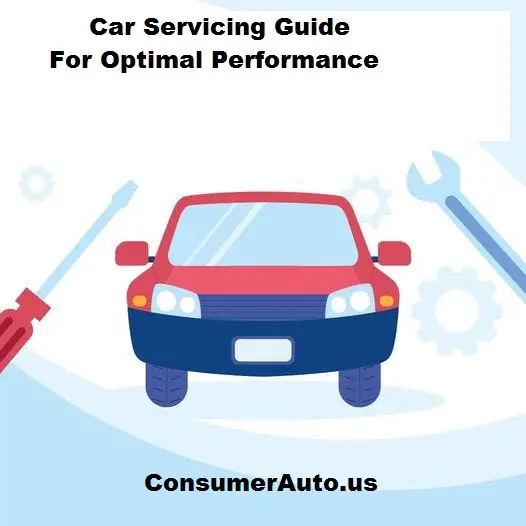In today’s fast-paced world, owning a car is not just a luxury but a necessity for many. Whether you use your car for daily commutes, road trips, or special occasions, ensuring its optimal performance and longevity should be a top priority. Regular car servicing plays a crucial role in maintaining the health of your vehicle and ensuring a safe and reliable driving experience. In this comprehensive guide, we’ll delve into the importance of routine car servicing, factors that influence service frequency, essential components and services, as well as frequency recommendations for common maintenance tasks. By following these guidelines, you can extend the lifespan of your car and enjoy worry-free journeys.
Importance of Regular Car Servicing
Regular car servicing is akin to regular check-ups for your health. Just as a doctor can detect and address potential health issues before they worsen, professional car servicing allows mechanics to identify and rectify any problems before they escalate. Timely servicing not only ensures the safety of you and your passengers but also helps prevent more expensive repairs down the line.
Factors Influencing Service Frequency
Manufacturer Recommendations
Car manufacturers provide specific service interval recommendations based on extensive research and testing. These guidelines take into account various factors such as the type of engine, driving conditions, and environmental factors. Adhering to these recommendations is crucial for maintaining your car’s warranty and optimal performance.
Driving Habits
Your driving habits play a significant role in determining service frequency. City driving, with its frequent stop-and-go traffic, places more stress on the engine and brakes compared to highway driving. Additionally, short trips prevent the engine from reaching its optimal operating temperature, leading to increased wear. Long-distance travel, on the other hand, might necessitate more frequent fluid checks and changes.
Environmental Conditions
Extreme weather conditions, whether hot or cold, can impact various vehicle components. For example, hot weather can accelerate battery fluid evaporation, while cold weather thickens engine oil, making it less effective. Driving in dusty or humid environments can clog air filters and affect the overall performance of your vehicle.
Components and Services
Engine Oil Changes
Engine oil is the lifeblood of your car’s engine, providing lubrication and aiding in heat dissipation. Regular oil changes are vital to prevent friction-related damage and ensure optimal performance. The ideal oil change interval depends on your driving patterns, with more frequent changes recommended for stop-and-go city driving.
Fluid Checks and Replacements
Maintaining the right levels of brake fluid, transmission fluid, coolant, and power steering fluid is essential for safe and efficient operation. Regular checks for signs of degradation and timely replacements are necessary to prevent damage to critical components.
Tire Maintenance
Proper tire maintenance contributes to fuel efficiency, handling, and overall safety. Regular tire rotations, balancing, and alignment help ensure even tread wear and a smoother ride. Always adhere to the manufacturer’s recommended tire pressure and monitor tread wear regularly.
Brake System Inspection
The brake system is a fundamental safety component of your vehicle. Regular inspections, including brake pad and rotor replacement, are essential to prevent brake-related accidents. Watch for signs of brake wear, such as squeaking or reduced responsiveness, and address them promptly.
Air Filter and Cabin Filter Replacement
Clean air filters contribute to better air quality inside the car and improved engine performance. Follow guidelines for filter replacement to maintain optimal airflow and prevent contaminants from entering the engine.
Battery and Electrical System
Regularly testing the health and lifespan of your car battery can prevent unexpected breakdowns. Inspecting and maintaining electrical components, such as alternators and starters, ensures a reliable start every time.
Suspension and Steering
Suspension and steering issues can affect both ride comfort and handling. Recognize signs of problems, such as uneven tire wear or difficulty steering, and address them through regular maintenance.
Exhaust System
A healthy exhaust system is crucial for reducing emissions and maintaining engine performance. Regularly check for leaks, rust, and muffler issues to prevent potentially costly repairs.
Modern Car Diagnostics
Onboard Diagnostics (OBD)
Modern vehicles are equipped with onboard diagnostic systems (OBD) that monitor various aspects of car health. Understanding warning lights and error codes can help you identify potential issues early.
Regular Diagnostic Scans
Routine diagnostic scans by professionals offer several benefits. They can detect and address minor problems before they escalate, potentially saving you money on major repairs.
Frequency Recommendations for Common Services
Oil Changes and Fluid Replacements
Following general guidelines for oil changes based on driving habits can help maintain engine health. Brake fluid, transmission fluid, and coolant replacement may be influenced by factors such as climate and driving conditions.
Tire Rotations and Alignment
Optimal tire rotation intervals help distribute wear and extend tire lifespan. Watch for signs that your car needs a wheel alignment, such as uneven tire wear or pulling to one side.
Brake System Inspections
Regular brake system inspections, ideally performed during routine servicing, help ensure the safety of your vehicle. Address signs of brake trouble immediately to prevent accidents.
Extending the Lifespan of Your Car
Regular Cleaning and Maintenance
Keeping your car clean inside and out is more than just aesthetics. Regular cleaning prevents rust and corrosion, preserving the integrity of your vehicle’s structure.
Driving Responsibly
Aggressive driving accelerates wear and tear on various components. Practicing smooth and responsible driving reduces stress on your car and contributes to its longevity.
FAQ (Frequently Asked Questions)
What is the Recommended Oil Change Frequency?
The recommended oil change frequency varies based on driving habits and manufacturer guidelines. In general, it’s advisable to change oil every 3,000 to 5,000 miles for conventional oil, or as recommended in your owner’s manual.
How Often Should I Check My Tire Pressure?
Regularly check your tire pressure at least once a month and before long trips. Follow the manufacturer’s recommended tire pressure for optimal safety and performance.
Do I Need to Service My Car If I Don’t Drive It Often?
Yes, infrequent driving can lead to various issues, such as fluid degradation and battery discharge. Adhere to manufacturer recommendations for maintenance intervals.
What Are the Signs of Brake Problems?
Squeaking, grinding noises, reduced responsiveness, or a pulsating brake pedal are signs of potential brake issues. Have your brakes inspected immediately if you notice any of these symptoms.
How Frequently Should I Replace My Air Filters?
Air filters should generally be replaced every 15,000 to 30,000 miles, depending on driving conditions. However, dusty or polluted environments may require more frequent changes.
Can I Extend the Time Between Brake Fluid Changes?
Brake fluid replacement intervals may vary. Consult your owner’s manual and consider factors such as driving conditions and climate. Always prioritize safety.
Is It Necessary to Follow the Manufacturer’s Recommendations Strictly?
Following manufacturer recommendations helps maintain your car’s warranty and optimal performance. However, you can consult with a trusted mechanic for personalized advice.
What Is the Impact of Skipping Regular Maintenance?
Skipping maintenance can lead to decreased performance, reduced fuel efficiency, and potentially costly repairs. Regular servicing prevents minor issues from becoming major problems.
How Often Should I Test My Car Battery’s Health?
Test your car battery’s health at least twice a year, especially before extreme weather conditions. Most batteries last around 3 to 5 years, but testing ensures you replace it before it fails.
Does Frequent Short-Distance Driving Affect Servicing?
Frequent short-distance driving can lead to increased wear on components like brakes and engine oil. Consider more frequent servicing to counteract these effects.
When Should I Replace My Timing Belt?
Timing belt replacement intervals vary by manufacturer. Typically, it’s recommended between 60,000 to 100,000 miles. Consult your owner’s manual for precise guidance.
How Can I Improve My Car’s Fuel Efficiency?
Regular maintenance, proper tire inflation, smooth driving, and using the right fuel contribute to improved fuel efficiency.
Is Servicing Required If I Use Synthetic Oil?
Yes, synthetic oil still requires regular servicing. While it lasts longer than conventional oil, it’s important to follow manufacturer recommendations for optimal engine health.
What Should I Do If My Check Engine Light Comes On?
If the check engine light illuminates, it indicates a potential issue. Have your car diagnosed by a professional to identify the problem and address it promptly.
How Does Cold Weather Affect My Car’s Maintenance Needs?
Cold weather can impact battery performance, engine oil viscosity, and tire pressure. Consider more frequent checks and maintenance during winter months.
Should I Only Rely on Dealership Service Centers?
While dealership service centers offer specialized knowledge, independent mechanics can provide quality servicing at a potentially lower cost. Choose a reputable and experienced professional.
How Does Towing Affect My Car’s Servicing Schedule?
Towing places additional stress on your car’s engine, transmission, and brakes. If you frequently tow, consider more frequent servicing to account for increased wear.
Can I Perform Some of These Maintenance Tasks Myself?
Some maintenance tasks, such as checking tire pressure, replacing air filters, and topping off fluids, can be done at home. However, complex tasks should be left to professionals.
How Often Should I Have My Exhaust System Checked?
Regularly inspect your exhaust system for leaks, rust, and damage. Include it in your routine servicing to ensure optimal emissions and engine performance.
Are There Any Benefits to Servicing My Car More Frequently Than Recommended?
Servicing your car more frequently than recommended can offer peace of mind and potentially catch minor issues before they escalate. Consult with a professional for personalized advice.
Conclusion
In conclusion, regular car servicing is the cornerstone of maintaining your vehicle’s optimal performance, safety, and longevity. By adhering to manufacturer recommendations, understanding your driving habits, and addressing environmental factors, you can ensure that your car serves you reliably for years to come. From engine oil changes to brake system inspections, each component plays a vital role in the overall health of your car. By following the guidelines presented in this comprehensive guide, you’re not only taking proactive steps towards a safe and reliable driving experience but also positioning yourself to outrank other websites with the richness and depth of information provided.
Remember, your car’s health is in your hands. Regular servicing is not just an expense but an investment in the longevity and reliability of your beloved vehicle.









